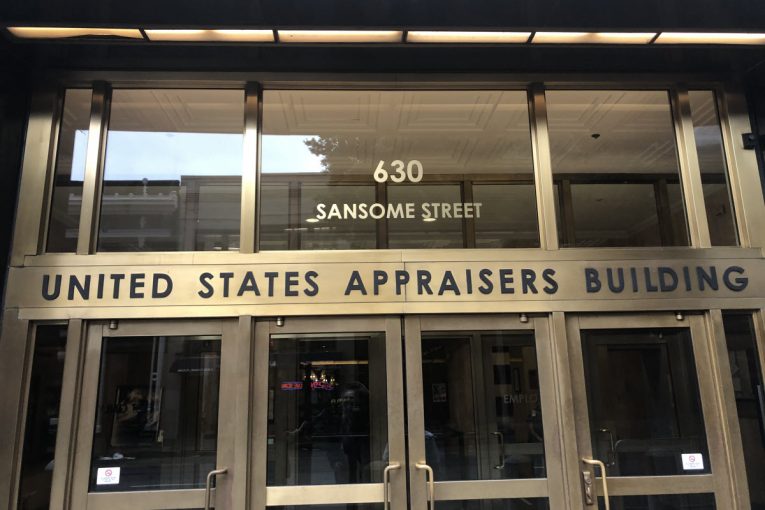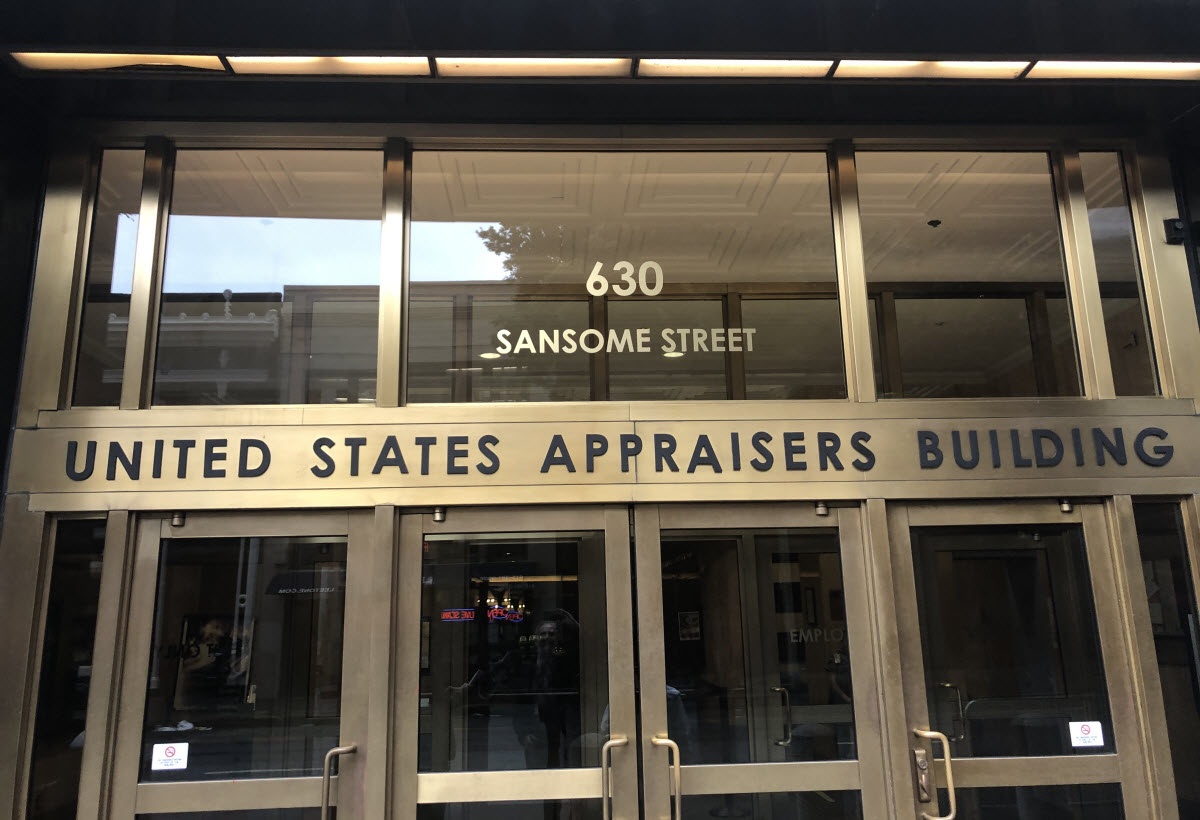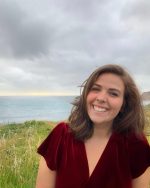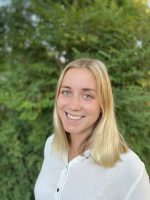

By Layla Mustafa
SAN FRANCISCO – Hearings began here this week in U.S. District Court to decide if the court should continue to oversee the embattled Mesa Verde ICE detention facility in Bakersfield, where more than half of detainees and at least one-quarter of the staff were infected with COVID-19 in July and August.
A brief filed last week charged that ICE and other officials misled the court, and increased the risk of virus transmission, including ignoring CDC protocols.
District Court intervened in August and ordered no new detainees should be “introduced,” and ordered weekly testing of staff and detainees. Now ICE has asked the court to lift these restrictions.
The evidentiary hearing in the matter is before Federal District Court Judge Vince Chhabria in the Northern District of California, where ICE officials are testifying under oath. Among those expected to testify are ICE Deputy Field Office Director Erik Bonnar and Acting Deputy Field Office Director Moises Becerra.
The VANGUARD IS PROVIDING IN-DEPTH COVERAGE.
MONDAY: Day 1
By Layla Mustafa
Monday’s proceedings saw a video deposition from ICE officer Alexander Pham, and witness testimony from ICE deputy field officer Moises Becerra.
On Nov. 11 the San Francisco Public Defender’s Office released a statement detailing the misconduct which took place at Mesa Verde which ultimately led to the COVID-19 outbreak at the facility. According to the statement, “ICE and GEO officials ignored CDC protocols, misled the court about their practices, and acted in a manner which amplified the risk of COVID transmission.”
The released documents indicated that ICE officials waited four days to offer testing to an exposed individual, knowingly compromised medical standards, misrepresented to the court the distance between facility beds (as they did not follow social distancing standards), intentionally downplayed risk factors and symptoms, and ignored the growing threat of staff transmission.
The defendants – the government – believe there is no longer need for any further judicial oversight over Mesa Verde. This request was indicated during Becerra’s testimony, in which he detailed the new plan for future COVID-19 procedures at Mesa Verde.
The plaintiff’s team has taken the position that the mountain of evidence illustrates the defendants’ incompetence in handling the risk of a COVID-19 outbreak at Mesa Verde, and their misconduct led to the July outbreak at the center. In addition to this, the defendants have made multiple misleading or false declarations to the court regarding the handling of the COVID-19 outbreak at Mesa Verde.
In fact – the beginning of Monday’s hearing included a video deposition of Alexander Pham’s witness testimony in which he was uncooperative with questioning. Alexander Pham, the ICE officer in charge of overseeing Mesa Verde, responded with “I don’t recall” to each question asked of him.
As part of the evidence against increasing Mesa Verde’s intake was Phams’s false declarations to the court. In June, Pham admitted to falsely misrepresenting the quarantine of arriving transfers from facilities with reported COVID-19 cases.
In a June statement Pham admitted, “At the time, I stated that all new arrivals transferred from another facility where there are any reported cases of Covid-19 infection will be placed in isolation for 14 days prior to being released into the general population. This  statement was inadvertently inaccurate”
statement was inadvertently inaccurate”
According to the plaintiff’s lawyers, they were given a limited amount of time for the deposition, and due to Mr. Pham’s unwillingness to answer straightforward questions meant they were unable to raise certain concerns. Judge Chhabria wondered if they had been able to ask Pham about his false declarations – apparently the plaintiff’s team was unable to do so. According to the legal team, the federal defendants denied the requested additional time to acquire more answers from Pham.
The next witness testimony Monday was from Becarra. In the first couple of hours, Becarra attempted to illustrate that Mesa Verde did the best it could under the circumstances, and ever changing regulations they faced. Additionally, Becarra continuously restated that they had “learned from their mistakes” and were ready to begin operating at a higher capacity with the court’s permission.
However, when asked seemingly very simple questions from both the court and Attorney Timothy Cook of Cooley LLP, there seemed to be some gaps in Becarra’s proposed plan.
Judge Chhabria inquired into the existence of any policy within the plan which would allow for one dorm to remain vacant at all times – in the case that there is another outbreak. Continuously having to rephrase his question- in order to get a straightforward answer, Chhabria pressured Becarra for some response, stating “Let’s say ultimately you have detainees in all four dorms, which would limit number of new detainees coming into the facility, what happens if you have detainees in all four dorms, and you have another outbreak? How do you handle that?”
Becarra answered almost all forms of the question by insisting that he does not believe they would put themselves in such a position where they would be short of an empty dorm during an outbreak. Becarra also strenuously noted that they could always move detainees to other facilities.
At one point, in response to Judge Chhabria’s questioning, Becarra stated- “We don’t necessarily have that written down in a policy, it’s just part of the facility administrator communicating to us: Can he effectively manage it? Can he effectively cohort? Based on the lessons learned.”
Exasperated, Chhabria finally reframed his question by saying: “I guess what I am trying to ask you is why by now would you not have a policy for Mesa Verde that says one dorm has to remain empty at all times? Why wouldn’t you have that by now? Given everything you said about the need to be able to cohort people. And how could they be ready to deal with another outbreak at Mesa Verde if you don’t have a policy of keeping at least one dorm empty at all times.”
Chhabria’s question is key because if the court allows Mesa Verde to increase intake, without an empty dorm written into the policy, there is no clear guarantee Mesa Verde would be able to mitigate another potential outbreak. Becarra insisted that they are working towards perfecting the policy and that he believes the situation at Mesa Verde will be managed through effective communication.
During the cross examination, plaintiff’s attorney Cook, representing a class of immigrant detainees, asked Becarra why ICE officials waited four days to offer testing to a dorm exposed to an individual who had tested positive. Additionally, asking why ICE officials continued to allow detainees into dorms with others who had been exposed to the virus.
“You did not offer emergent testing to folks in Dorm B after you had known people had tested positive,” Cook said.
Becarra explained that at the time there were a lack of test kits, and that they requested more. Then, in reference to immediate retesting after the initial tests came back positive, he said he could not properly recall whether or not they were done. However, Becarra specified said that there was a mass saturation test in early August.
Finally, another highlighted discussion between Becarra and the court regarded the “14 day clock” portion of Mesa Verde’s new intake policy.
When explaining the policy, Becarra was unable to confirm or deny whether quarantined detainees would stay isolated for at least 14 days after a new detainee was added to the quarantine unit. The policy specifies the clock will restart if a new detainee is to arrive between Monday and Friday of a particular week but does not further specify any policy if new detainees are added to the unit in the following week.
Judge Chhabria followed up on this topic stating: “It sounds like you are leaving open the possibility that you’ll have one group of detainees placed in cohort, then sometime later you will have another group of detainees placed in cohort. Seems like you’re leaving open that possibility.”
After additional questions, Becarra indicated that the “running clock” for Monday-Friday would not restart the following week. However, he gave no definitive answer.
Judge Chhabria responded to his vague answers declaring, “You keep saying: ‘that essentially describes the cohort.’ And whenever you say ‘that essentially describes it,’ makes it sound like you are leaving open the possibility like it may happen.”
The 14-day clock intake policy was not detailed within the intake document; however Becarra. claims to have briefed the facility and made his staff aware of the policy.
Currently, Mesa Verde is operating at 15 percent (49 detainees) capacity after Judge Chhabria released more than 100 detainees at Mesa Verde and Yuba County Jail to reduce crowding and COVID-19 risks.
 Layla Mustafa is a recent graduate from UC Davis. She is currently applying to law school and living in the Bay Area.
Layla Mustafa is a recent graduate from UC Davis. She is currently applying to law school and living in the Bay Area.
TUESDAY: Day 2
By Emma Phillips
Judge Chhabria snapped at counsel on Tuesday afternoon, calling cross-examination “completely ridiculous” and a “waste of time” after defendants’ attorneys Neal Hong and Susan Coleman continually asked questions that did not elicit answers providing any new information to the Zepeda Rivas, et al. v. Jennings, et al. case.
Dr. Robert Greifinger took the stand to testify of the short-comings of Mesa Verde immigration detention center in preparation for and response to an outbreak of COVID-19.
Emi MacLean, from the SF Public Defender Office, is representing the plaintiffs, civil immigration detainees, and began her questioning of Greifinger by establishing his credibility.
The doctor explained how he is a consultant in correctional healthcare, was previously employed by New York State prison system as a Deputy Commissioner and Chief Medical Officer, has a long standing appointment at Albert Einstein College of Medicine and John Jay College of Medical Justice, has written around 80 scholarly articles, edited the book Public Health Behind Bars: From Prisons to Communities, and served on advisory boards for both the Center for Disease Control and World Health Organization. Greifinger is also currently an independent court-appointed monitor for jails in Louisiana, Florida and New Mexico.
In a summary of opinions presented by Greifinger, he claims that the Mesa Verde detention facility is “structurally deficient in the context of COVID-19.” He describes that on his virtual tour he  discovered that Mesa Verde is a “dorm-style” facility, meaning it contains four different 100-bed dormitories.
discovered that Mesa Verde is a “dorm-style” facility, meaning it contains four different 100-bed dormitories.
Mesa Verde’s plan of action to prevent the transmission of COVID-19 was to have every other top bunk filled with a detainee sleeping with head pointing one way, and alternating bottom bunks filled with a detainee sleeping with their head pointing the opposite way.
Greifinger’s virtual site visit proved that there was only about a four feet diagonal distance between a top bunk and an adjacent bottom bunk, and a 36” vertical distance between a top and bottom bunk (previously misrepresented to the court as 49”). Therefore, Mesa Verde’s current plan to halt transmission of the virus is insufficient, as detainees are not distanced more than six feet from each other.
Further in the examination, Greifinger continually highlighted the importance of having the ability to separate groups of detainees within the detention center. He claims those that are at the highest priority for isolation are symptomatic detainees that have not yet tested for COVID-19.
There is no way to know whether members of this group are infected with the virus or not, and therefore should not be in contact with known-infected individuals or the general population, he said.
Greifinger claims there should be medical isolation cells in place in Mesa Verde for those with symptoms, as well as a place to cohort known-infected individuals, a place for new arrivals to the center, a place for the general population, and a place for those who refuse to get tested for the virus.
This would require five different areas, suited to house different populations of the detainees at different times when dealing with an outbreak, an architectural layout that Mesa Verde just does not have.
Judge Chhabria wondered if the question is not how Mesa Verde should have handled the outbreak, but if they are even equipped to hold detainees at all during a pandemic.
In a piece of evidence presented to the court by MacLean, Mesa Verde Field Office Director Alexander Pham describes how the facility’s two medical isolation and three restrictive housing unit cells are currently occupied as is “generally always the case”, and a first positive COVID-19 case would potentially lead to “immediate logistical issues” within the facility.
He adds there is no logistical way to cohort/isolate a second positive case.
Greifinger’s information regarding the necessity of isolating different groups of detainees and Pham’s direct commentary on how this would not be possible, pose a serious threat to the health and well-being of detainees and employees at Mesa Verde, believe plaintiffs/detainees.
Regarding testing at the facility, MacLean presented documentation that proves multiple detainees tested positive for COVID-19 on July 29, 2020, an off-site testing laboratory received samples on or around August 3, 2020, and did not get results back to Mesa Verde until around August 16.
This lack of urgency in testing poses a significant risk to detainees and employees, and Greifinger claims Mesa Verde needs to implement serial, mass testing to insure the safety of its inhabitants.
In cross-examination by defendants/ICE lawyer Hong, the attorney goes to great lengths to discredit Greifinger and any of his past accomplishments, claiming he has not worked hands-on with a patient in 35 years, and all three of the detention facilities he’s monitored have had cases of COVID-19, two of which were considered outbreaks.
Hong goes on to suggest that Greifinger does not have expert knowledge of the virus as the one chapter dedicated to COVID-19 in his book was written by outside experts, he has never written any articles on COVID-19, and he doesn’t do scientific research on COVID-19 or viruses in general.
Hong then asks a flurry of questions regarding the measurements of bunk distance from Greifinger’s earlier testimony, most of which had already received answers.
Hong’s co-counsel Coleman also cross-examined the witness for the defense, and was continually cut-off by Judge Chhabria who claimed most of her questions “we all already know the answer to” or were already on the court record.
The bulk of Coleman’s cross-examination was also an attempt to discredit Greifinger and his knowledge of COVID-19 or viruses in detention centers.
Judge Chhabria asks Coleman to save the rest of her questions from tomorrow when she says she has about 30-40 minutes left, and he expressed to counsel that they had not “really gotten anywhere” with Tuesday’s testimony.
The judge explains that he understands the need to build a record and “dot your i’s and cross your t’s,” but Tuesday was just “completely ridiculous.” He orders counsel, especially the defense, to coordinate with each other and look at their questions to determine if they are truly meaningful.
Testimony continues Wednesday afternoon.
 Emma Phillips is a third year Communication major with a double minor in Political Science and Computer Science at UC Davis. She is originally from Santa Ana, CA.
Emma Phillips is a third year Communication major with a double minor in Political Science and Computer Science at UC Davis. She is originally from Santa Ana, CA.
To sign up for our new newsletter – Everyday Injustice – https://tinyurl.com/yyultcf9
Support our work – to become a sustaining at $5 – $10- $25 per month hit the link:




